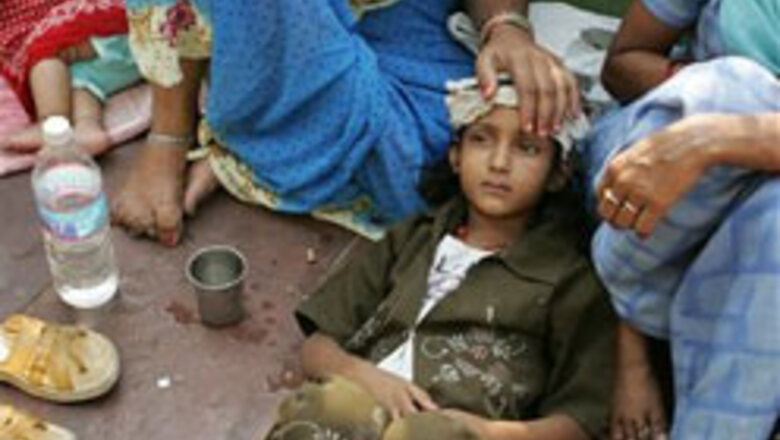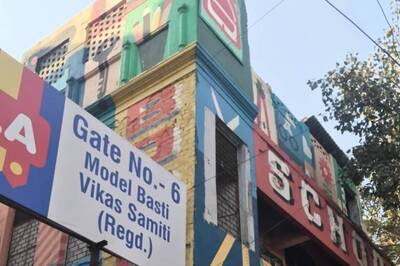
views
New Delhi: Sharda Devi shivers, despite being covered by a thick blanket as her daughter Malti gives her a cold compress. Unable to find a bed in the country's premier hospital due to an influx of dengue patients, Sharda has spent two days on the pavement outside the emergency ward of the All India Institute of Medical Sciences (AIIMS) in Delhi.
Walking into the AIIMS one comes face to face with the stark realities of the dreaded dengue viral, the fear of which is almost omnipresent in the sprawling 225-acre campus, one of the largest hospital complexes in this part of the world.
Entire families have been camping out on bed sheets, straw mats, plastic sheets, and whatever else they can find - hoping that their relatives afflicted with the mosquito-borne dengue disease will be cured soon.
The institute has had to bear the brunt of the dengue outbreak that has claimed 34 lives in the national capital alone.
On entering the institute, the guard warns you by saying that the place is overflowing with dengue patients and their relatives. He gravely said: "We are so scared that we might be the next to be bitten by the dengue bug."
The sidewalk leading up to the emergency and dengue wards is teeming with over 100 anxious people - mostly relatives of dengue patients.
Though a tent has been erected on one side of the pathway, the other side is completely open. Most of the people are poor and have come from neighbouring states like Haryana, Uttar Pradesh and Rajasthan.
What strikes you is the way they have adjusted, or rather been forced to adjust to continue living their private lives in the direct glare of the public.
Women are busy feeding their families and children, some men read newspapers on the few metal chairs provided there and many were sprawled out - probably sleeping away their worries.
Many dengue patients, like Sharda Devi, covered completely in thick blankets, share space on the sidewalks due to the lack of beds in the overcrowded dengue ward.
Families camp under trees in the parking area. With so many people living in the open, garbage is strewn callously, creating hygiene problems, despite dustbins being provided at several places.
People wait for hours in long queues outside counters from where blood test reports had to be collected. "I've been standing in this line for over three hours," said a middle-aged man awaiting his son's blood test report.
Tempers are raised when the counter showed no signs of opening. And when it did open, a general feeling of relief could be sensed as receipt numbers were announced over a loudspeaker.
A silver lining in the otherwise depressing scenario at AIIMS was Anil Goswami, a doctor seated behind a table right in the middle of the pavement. He was patiently explaining to people the modalities of filling out blood test forms.
He also distributed leaflets containing detailed information in Hindi about dengue, its causes, symptoms and prevention. "We've distributed over 17,000 such leaflets. We have also taken them to nearby schools," Goswami said.
Similar information is also displayed with detailed graphic images on large graphic hoardings put up at different places.
The small set of shops located opposite the private ward wing at AIIMS, were also unusually teeming with people - being the nearest source of food, tea and basic groceries.
Though the campus is fumigated every day, fear of contracting the viral looms in the minds of patients' relatives and staff of the institute.
Seeing the misery of the innumerable patients and their relatives, one can only hope that the winter arrives soon, bringing an end to the post-monsoon season - known to be favourable for the breeding of mosquitoes - and the spread of the deadly dengue virus.




















Comments
0 comment